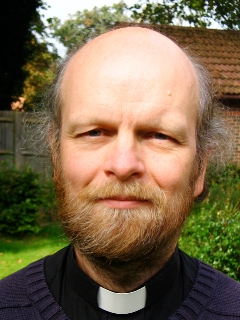|
The words we use matter
16th August 2018

Andrew Bryant explains that the words we use can enhance or detract from the content of what we are saying
Once again Boris Johnson has hit the headlines. The upset he has caused this time is less about the topic he was addressing – the head covering worn by a small minority of women – but the language he used. Sadly, the legitimacy of any argument he wanted to make has been lost in the debate about the language he chose to use
This was a written article, not an off-the-cuff remark, so some have suggested that his choice of words was deliberate, designed to attract attention. Intended or not, the language used has resulted in attracting attention more than enabling a debate, generating more heat than light
A man being rather forceful in his views on what women should or should not wear, and in turn being defended in his attitudes by other men, was never going to be a dignified moment of political debate. Written in the name of defending liberal values, the illiberal phrases used, however jokily intended, have sadly led to responses that did little to espouse liberal values
When writing an article and especially in a post on social media, there is always the temptation to craft a clever phrase or use a challenging image to attract attention. Amidst the sea of tweets, posts and blogs there is longing to be noticed, to be liked, retweeted or shared – that, after all, is the measure of success. Newspapers love the ill-chosen phrase as it makes good headlines and radio and television love setting up debates between extremes in the alleged name of good viewing/listening
Sadly, too much of modern political debate is reduced to the sound bite, with a well-chosen (and/or provocative) image or phrase to make it memorable. The result is political debate that is often coarse and lacking in dignity. Insult and put-down seem more important than advancing an argument and bringing about change. Volume is regarded as mattering more than insight. The result seems to be growing division and bitterness
The language we use does matter. It can either build bridges or create barriers. Language can either encourage honest debate or increase a bunker mentality. Jesus urges us to keep our language simple: “All you need to say is simply 'Yes' or 'No'; anything beyond this comes from the evil one” (Matthew 5:37)
This is echoed in the Letter of James (5:12) “Above all, my brothers and sisters, do not swear--not by heaven or by earth or by anything else. All you need to say is a simple "Yes" or "No." Otherwise you will be condemned.” And, as St Paul puts it in his Letter to the Ephesians (4:26), “Be angry but do not sin”
Our nation feels, sadly, an increasingly divided land. We have forgotten how to speak to one another in gentleness and compassion. Rightly used language can help us reach out to one another. At it best it can invite open and honest debate where all sides seek resolution, a sense of being able to move forward together
In difficult times, it would be good if the Church could be known for offering a quieter, more reflective voice, one that is quick to understand and slow to judge, one that sees success not in terms of attention gained but love shared
As Elijah (1Kings 19:12) discovered, After the wind, the earthquake and the fire comes the still small voice. This is the voice that needs our fullest attention with its searching question: what are you doing here? It is rarely the loudest voice that needs the most attention and always the language we use will matter
the above image is courtesy of https://pixabay.com/
this article first appeared on Network Norfolk and is reproduced with permission
 The Revd Andrew Bryant is the Canon for Mission and Pastoral Care at Norwich Cathedral. He was previously Team Rector of Portishead, Bristol, in the Diocese of Bath and Wells, and has served in parishes in the Guildford and Lichfield Dioceses, as well as working for twelve years with Kaleidoscope Theatre, a charity promoting integration through theatre for young adults with Down’s Syndrome The Revd Andrew Bryant is the Canon for Mission and Pastoral Care at Norwich Cathedral. He was previously Team Rector of Portishead, Bristol, in the Diocese of Bath and Wells, and has served in parishes in the Guildford and Lichfield Dioceses, as well as working for twelve years with Kaleidoscope Theatre, a charity promoting integration through theatre for young adults with Down’s Syndrome
you can read Andrew's latest blog entry here
The views carried here are those of the author, not of Network Yarmouth, and are intended to stimulate constructive and good-natured debate between website users
Click here to read our forum and comment posting guidelines
|
|
|
|